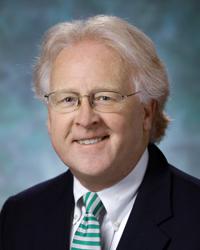Research Lab Results
-
HPTN (HIV Prevention Trials Network) Network Lab
HPTN (HIV Prevention Trials Network) Network Laboratory (NL) is responsible for collecting, testing and reporting results from biological samples; assisting in the development and quality assurance assessment of local laboratory capacity at the Clinical Trials Units (CTUs) participating in HPTN clinical trials (www.hptn.org); and identifying and implementing state-of-the-art assays and technologies to advance the scientific agenda of the Network. -
Hsin-Chieh Yeh Lab
Work in the Hsin-Chieh Yeh Lab focuses on clinical trials and cohort studies of diabetes, obesity and behavioral intervention, cancer and hypertension. Recent investigations have focused on novel risk factors and complications related to obesity and type 2 diabetes, particularly lung function, smoking and cancer. We recently co-led a randomized clinical trial of tailored dietary advice for consumption of dietary supplements to lower blood pressure and improve cardiovascular disease risk factors in hypertensive urban African Americans.
-
Hsu Lab
Our work is focused on the translational human in vivo and ex vivo assessments of right ventricular (RV) function in the setting of pulmonary hypertension. Among patients with group I pulmonary arterial hypertension PAH, those with systemic-sclerosis-associated PAH (SSc-PAH) have a particularly poor prognosis and less optimal response to PAH-guided therapy. Using in vivo pressure-volume catheterization of the right ventricle, we have uncovered key deficiencies in resting and reserve RV function in the SSc-PAH group when compared to idiopathic PAH (IPAH) patients. These studies have uncovered key discoveries with regards to right ventricular-pulmonary arterial (RV-PA) coupling in PAH. In the lab, by studying myofilament function from RV endomyocardial biopsies from these same patients, we have uncovered corresponding deficiencies in myofilament contractility and calcium sensitivity as well. Ongoing work is directed towards determining the underlying mechanism of these findings, which will hopefully lead to therapeutic applications for RV failure in SSc-PAH. Further endeavors are directed towards studying RV failure in other populations, including exercise-induced PH, PH secondary to left-heart disease, and the left ventricular assist device population.
-
Huang Laboratory
Our lab is interested in understanding the fundamental mechanisms of how cells move and implications in disease treatment. We use an interdisciplinary approach involving fluorescent live cell imaging, genetics, and computer modeling to study the systems level properties of the biochemical networks that drive cell migration. -
IBD and Autoimmune Liver Diseases Laboratory
Investigators in the IBD and Autoimmune Liver Diseases Laboratory conduct basic and translational research in inflammatory bowel disease (IBD) and autoimmune liver diseases. One area of focus is discovering and developing biomarkers for diagnosing and prognosticating IBD and other autoimmune liver diseases (AILDs). We also are exploring the molecular pathogenesis of—and developing novel therapies for—IBD. In addition, we are working to understand the molecular reason why many IBD patients fail to respond to mainstay drug therapies—and to develop diagnostic assays that can predict non-responders before starting them on those therapies. These biomarker studies have led to our application for four U.S. and international patents.
-
Improving Outcomes Following Injury and Illness
Led by Stephen Wegener, Ph.D, this research group focuses on projects that have the potential to improve function and quality of life and reduce disability following injury or illness. These projects include research on cognitive, behavioral, psychological and health care system factors that affect outcomes following injury. -
IndoUS Clinical Research
Our IndoUS team, based both in Baltimore and in India, specializes in international clinical research (cohort studies and clinical trials), public health implementation science and education in infectious diseases, HIV/AIDS, tuberculosis (TB), vaccine preventable illnesses, antimicrobial resistant infections, and more recently COVID. Since 2003, our work has been focused primarily on India, where we are engaged in several Indo-JHU and international research collaborations. We partner with several leading medical and research institutions in India (e.g. BJGMC, DY Patil, Hinduja Hospital, KEM, Bharati Vidyapeeth, NIRT, JIPMER, CMC, Medanta, IISER, YRG, IIT), as well as others in sub-Saharan Africa, US and Brazil. We are actively involved in the following consortia: 1) Indo-US Vaccine Action Program sponsored RePORT India TB research consortium, which is funded by the US National Institutes of Health (NIH) and the government of India, Department of Biotechnology. 2) RePORT International TB Research Consortium, a multilateral global consortia for TB research, 3) US NIH funded multi-country HIV and TB trials consortia of the AIDS Clinical Trials Group (ACTG) and the International Maternal Pediatric Adolescent AIDS Trials Network (IMPAACT) Network, 4) NIH and AmFAR funded IeDea HIV/TB Working Group and the Treat Asia-IeDEA HIV and TB epidemiology databases, and 5) CDC SHEPHERD AMR studies. Our group has been awarded research grants from the US NIH, US CDC, UNITAID, Indian government, and several philanthropic foundations to investigate infectious diseases of importance to India and beyond.
-
Inoue Lab
Complexity in signaling networks is often derived from co-opting one set of molecules for multiple operations. Understanding how cells achieve such sophisticated processing using a finite set of molecules within a confined space--what we call the ""signaling paradox""--is critical to biology and engineering as well as the emerging field of synthetic biology. In the Inoue Lab, we have recently developed a series of chemical-molecular tools that allow for inducible, quick-onset and specific perturbation of various signaling molecules. Using this novel technique in conjunction with fluorescence imaging, microfabricated devices, quantitative analysis and computational modeling, we are dissecting intricate signaling networks. In particular, we investigate positive-feedback mechanisms underlying the initiation of neutrophil chemotaxis (known as symmetry breaking), as well as spatio-temporally compartmentalized signaling of Ras and membrane lipids such as phosphoinositides. In parallel, we also try to understand how cell morphology affects biochemical pathways inside cells. Ultimately, we will generate completely orthogonal machinery in cells to achieve existing, as well as novel, cellular functions. Our synthetic, multidisciplinary approach will elucidate the signaling paradox created by nature. -
Interventional Cardiology Research Group
Our group is interested in a broad array of clinical and translational investigations spanning the evaluation of basic pathophysiology in patients undergoing cardiac procedures, development and evaluation of new therapeutic strategies, and improving patient selection and outcomes following interventional procedures. We are comprised of a core group of faculty and dedicated research nurses as well as fellows, residents, and students. Projects range from investigator-initiated single-center observational studies to industry-sponsored multicenter phase 3 randomized controlled trials. We have established a database of all patients who have undergone TAVR at Johns Hopkins, which is providing the basis for several retrospective analyses and will serve as the foundation for future studies of TAVR. We are also engaged in collaborative projects with other groups from the Department of Medicine and other Departments including Cardiac Surgery, Anesthesiology, Radiology, Psychiatry, and Biomedical Engineering. Members of our group are actively involved with the Johns Hopkins Center for Bioengineering Innovation and Design (CBID) in the development of novel minimally-invasive cardiovascular devices.
-
Intestinal Chloride Secretion
Intestinal chloride secretion is stimulated during diarrhea. Cholera toxin is secreted by bacterium Vibrio cholera and is responsible for the watery diarrhea after cholera infection. Mechanistically, cholera toxin increases intracellular cyclic AMP, which subsequently activates protein kinase A and the cystic fibrosis transmembrane regulator chloride channel (CFTR). However, we recently identified an intestinal cAMP-Ca cross-talk signaling pathway that is initiated by elevation of intracellular cAMP and subsequently elevates intracellular Ca concentrations through the exchange protein activated by cAMP (Epac). This observation suggests that both CFTR and calcium-activated chloride channels are targets of elevated intracellular cAMP signaling molecule. Therefore, we are studying the role of calcium-activated Cl channels in intestinal chloride secretion under physiological conditions and during diarrhea. We are also determining whether the recently identified transmembrane protein 16 family of proteins, which are calcium-activated chloride channels, is also involved in intestinal chloride secretion in addition to the well characterized CFTR channel. Increased understanding of regulation of intestinal Cl secretion provides the necessary background information for the development of therapeutic drugs for the treatment of diarrhea, constipation and cystic fibrosis. The discovery that calcium-activated chloride channels are involved in intestinal chloride secretion provides additional targets for anti-diarrhea drug development.




